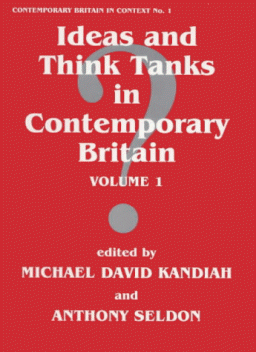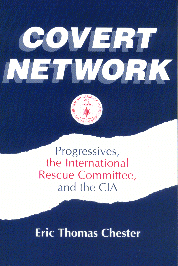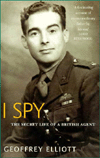Ideas and Think Tanks in Contemporary Britain: Volume 1
edited by Michael David Kandiah and Anthony Seldon
Frank Cass, London/Portland, Oregon, 1996
£29.50
As the title suggests this really contains two separate though not unrelated areas. The first is a series of shortish essays about so-called think tanks in the UK which follow on from the pioneering work of Richard Cockett.(1) As a well as a useful overview of the subject and its problems – of which the chief one is the fact that many of the so-called think tanks are essentially propaganda operations – we get accounts of the Adam Smith Institute, the Social Market Foundation and the Institute for Economic Affairs. There is much interesting detail here but virtually no account of their funding and thus no attempt to link their ideas and proposals to their paymasters. In the case of the Adam Smith Institute, for example, we learn that its trio of founders all began their careers in the United States in the 1970s working with Edwin Feulner, the founder of the Heritage Foundation. But if Heritage is, as I am regularly told, a CIA operation, what does this make Adam Smith?
The other section of the book is a series of interviews with a selection of the Great and the Good – messers Dahrendorf, Giddens, Seldon, Crick and others – on the role of political ideas and ideology in post-war Britain. Beyond showing us that Crick’s memory for names is going, this tell us little; transcripts of conversations rarely do. Bridging the two sections is a discussion between some former members of the Number 10 Policy Unit.
This is a useful little volume with some interesting information and snippets of political gossip; but at £29.50 for 200 pages?
1 See the review of his Thinking the Unthinkable in Lobster 28 p. 33.
From Blitz to Blair: a new history of Britain since 1939
ed. Nick Tiratsoo
Phoenix (Orion), London,1997, £7.99 pb
This collection of essays covering the 1930s through to the arrival of Blair, is worth noting for the final three in which Kenneth O. Morgan on Wilson, editor Tiratsoo on the 1970s and Paul Hirst on the Thatcher period, firmly reject the conventional neo-liberal/Thatcherite redemption drama of slow descent through the sixties into the nightmare of the 70s and salvation under Mrs Thatcher. The three essays are too short to do much more than sketch in their respective theses: Tiratsoo, for example, rattles through the 1970s in 27 pages (it is, in effect, an outline of what would be a very interesting book); none of them have taken on board enough of the parapolitical agenda: there is almost nothing on the military-intelligence complex; and all three give too little weight to the dominance of the City in this country’s recent history. But all of them, especially Tiratsoo and Hirst, are very welcome broadsides against the prevailing orthodoxy of the past twenty years which appears to be slowly going down the pan. Apparently we are all Keynesians now.
Covert Network: Progressives, the International Rescue Committee and the CIA
Eric Thomas Chester
M. E. Sharpe, Armonk, New York and London, 1995
There is no price on this and I have forgotten how much I paid for it. A 250 page large (trade) format paperback, this a depressing account of how the International Rescue Committee, formed by a group on the left to help refugees from Hitler’s Germany in the 1930s, was swallowed up after the war by the CIA – the covert network; and how, having taken the US state’s money, the Committee ended up as a propaganda asset for the Agency during the Cold War. Another piece in the Cold War jigsaw, this is a salutary tale both of the dangers of state funding and the innocence of sections of the American liberal-left who were so easily persuaded to surrender their independence and their critical judgement by the red scare of the early Cold War.
I SPY: The Secret Life of a British Agent
Geoffrey Elliott
St Ermin’s Press/Little, Brown,
London, 1998, £18.99
The agent in question was Elliott’s father, Kavan, about whom Elliott knew very little until he began to research his life. The result is very interesting indeed: part biography, part autobiography, part history, and part historical travelogue through the countries of Central Europe in which Elliott’s father worked for SIS and SOE before, during and after the war. Almost incidentally there are interesting snippets about SIS people and operations – but that isn’t the focus of the book. In trying to recreate his father, Elliot has written an acutely evocative portrait of a certain kind of Englishness, found in the fading years of Empire, that peculiar mixture of snobbery and patriotic duty, which has now largely disappeared beyond the Home Counties belt round London. Elliot is a retired banker and, as far as I am aware, this is his first book. I hope he writes some more, for this is a beautiful piece of writing.
The Armour-Plated Ostrich: The Hidden Costs of Britain’s Addiction to the Arms Business
Tim Webb
Comerford and Miller, West Wickham, Kent, 1998
£19.99 (hb) £9.99 (pb)
Short (200 pages), punchy account of the British military-industrial complex by an official of the MSF union some of whose members are employed in the arms business. Similar in intent to but broader and less detailed than Cooper’s The Business of Death, reviewed in Lobster 34. Webb runs through the cold war; British defence policy since the war; some of your favourite defence-related scandals of recent years (we get Aitken but not Gerald James; and in general, not enough about the arms to Iraq business); Labour’s attitudes to most of this; and concludes, as many have done before, that the British military-industrial-bureaucratic complex is an expensive rip-off of the tax-payer which absorbs far too much of the British R&D budget and employs too many of its scientific and technical brains. It’s not a new message but one which can hardly be reiterated too often.
Mapping the Millennium: Behind the Plans of the New World Order
Terry M. Boardman
Temple Lodge, London 1998 (no price)
On the rear cover we read that ‘In the work of the Austrian philosopher Rudolph Steiner, Boardman discovered convincing claims of the existence of secretive circles in the West who had long-term plans for humanity’s future. Steiner indicated that such “brotherhoods” had planned for a world cataclysm in the twentieth century and had instructed their members, by means of redrawn maps, on how Europe was to be changed’ (emphasis added).
Another strange book from the British Steiner people, really only worth mentioning here for the author’s repeated citing of Carroll Quigley. In this case Boardman claims to show the ‘continuity with which their [the Milner Group] intentions have been maintained throughout this century.’ And how is this done? By ‘examin[ing] in details maps and articles which….reveal something of the occult aims of those who have shaped much of the development of the twentieth century’ (emphasis added). There are some interesting accounts of recent foreign policy developments but these are repeatedly juxtaposed with events, articles and maps of a century earlier. And this encapsulates the author’s problem: rather than illustrating the ‘continuity’ he perceives, he merely asserts its existence. But given the author’s mystical orientation this is not terribly surprising.
Killing Hope: U.S. Military and CIA Interventions Since World War 2
William Blum
Common Courage Press, Monroe, Maine, USA, $19.95
This is an expansion and updating of Blum’s The CIA: A Forgotten History, published by Zed Press in London in 1986. There are six new chapters, for example, on Libya, Panama, Bulgaria, Iraq, Afghanistan and Haiti. As the author notes, ‘The American government keeps people like me very busy.’ This is 383 pages of text, and 66 pages of documentation and appendices. The earlier edition was the best single volume on the CIA – or, indeed, on US post-war foreign policy – an invaluable reference source. This new edition supplants it in that position.
This is not published in the UK but the publisher is at PO Box 702, Monroe, ME 04951, USA; telephone 207 525 0900; fax 207 525 3068. And there is always amazon.com.





